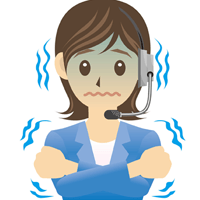
Feeling lonely in life or unhappy at work? Before you pity yourself or call it quits, check the thermostat. Temperature strongly influences how we feel about ourselves, our environments, and the people around us.
 Physical warmth can diminish feelings of loneliness and increase feelings of generosity, finds Yale psychologist John A. Bargh. In a recent study published in Emotion, participants who reported feeling the loneliest also took the warmest, longest, and most frequent baths or showers — “quite literally,” Bargh says, “to compensate for feeling socially cold.”
Physical warmth can diminish feelings of loneliness and increase feelings of generosity, finds Yale psychologist John A. Bargh. In a recent study published in Emotion, participants who reported feeling the loneliest also took the warmest, longest, and most frequent baths or showers — “quite literally,” Bargh says, “to compensate for feeling socially cold.”
One implication: Don’t be so quick to crank up the office AC. In two studies by UCLA researcher Geoffrey Ho, people were asked to rate the efficacy of heating pads or ice packs and then answer questions about their employer or a hypothetical company. Those who got their hands warm expressed higher job satisfaction and greater willingness to buy from and work at the made-up companies.
The findings are just the latest to show how our physical selves shape our psychological selves, a field known as embodied cognition. Previous studies have demonstrated that social exclusion can make us feel chilled and a cup of iced coffee can make us judge others as unfriendly.
“Abstract psychological and social concepts–how we think and feel about people, including ourselves–grow out of basic physical concepts like warmth and coldness,” explains Bargh.
Some parts of the brain are particularly adept at translating physical sensations into psychological effects. By looking at subjects inside an fMRI machine, Bargh found that activity in the insular cortex–the brain’s Richter scale for discomfort–spikes when participants hold chilled objects and drops when they hold toasty ones. The warmed subjects were also more likely than the cold ones to offer to a friend the prizes they received for participation, suggesting a possible overlap between the neural centers of trust and physical comfort.
Temperature affects our perception and mood below our level of awareness, for the most part. But Ho and Bargh agree that we can consciously use its subtle influence to our advantage.
“Try providing warm beverages at a job fair or an office to increase the organization’s perceived friendliness,” suggests Ho.
Bargh’s advice? Trust your instincts. “Most of us use physical warmth as a home remedy without even understanding or being aware of why we do it,” he explains. Not only will a warm bath or a steaming cup of tea relax you, it might also make you less lonely and more trusting. “So if you’re craving a higher temperature,” says Bargh, “go for it.”
– Katherine Schrieber, Psychology Today Magazine
(c) 2012 SUSSEX PUBLISHERS, INC. ALL RIGHTS RESERVED DISTRIBUTED BY TRIBUNE MEDIA SERVICES, INC.

